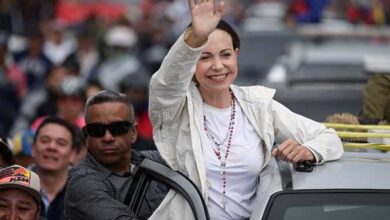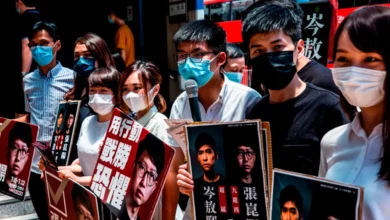In their first attempt toward establishing a democracy, Egyptians apparently misunderstood the real meaning of the concept, and how its mechanism functions. Democracy is not only about placing ballots in transparent boxes to set up a government. Democracy is a philosophy of ruling and governing a country through a given mechanism that entails many aspects. Limiting the concept of democracy to the idea of an authoritative majority being in power is a serious error in building the “New Egypt.”
Democracy, in essence, is about the rule of law. Empowering institutions that may overrule an elected president, having a genuine understanding and correct practice of human rights, enabling real freedom of expression that is supported by law, developing a political structure that empowers citizens to easily engage in politics — these are some of the real attributes of democracy. These attributes conclude in elections, and permit a single party, or a coalition of parties, to rule any given country.
Acknowledging the above-mentioned process does not mean diminishing the rights of minorities who did not fare well in elections, but still attempted to politically engage in the progress of their respective countries, nor does it mean forcing these minorities to follow and abide by the decisions of the majority.
In most advanced and well-established democratic nations, there is sizable room for minorities to apply their ideas and practice their rights. Certainly, this does not mean that political minorities may establish their own governments — but the government in power must always recognize the right of the minority to pursue beliefs or ideas that differ from its own. This could happen through enabling citizens to practice a religion that is different than that of the majority, or advocating for an idea and promoting policies completely opposite to those espoused by the majority.
The fact that minorities are, by definition, small groups of people in quantitative terms, doesn’t mean that these groups support the wrong ideas or policies. A political minority is simply a group that has not managed to persuade a sufficient number of citizens to vote for it.
Engaging minorities in the political decision-making process helps the society of a given nation to be in harmony, thus contributing to enhancing that nation’s progress and performance.
Recognition by the ruling government of politicians who represent minorities and their ideas does not destabilize the government or threaten its principles. On the contrary, a bias toward good ideas and people with merit is a sign of political maturity; turning a blind eye toward all notions put forth by minorities is not an advisable approach.
Carrying on an ongoing debate over national issues between governments and their opposition enables countries to progress and allows their people to flourish — as long as this debate is managed in a constructive manner that enables rivals to listen to one another and convey their views to the public, who will eventually pick their favorite party’s policies. An obsession with the phenomenon of the political majority is actually destructive of the majority, who will not be able to progress if they only listen to their own egos.
Elections bring a government to power. However, this does not mean that the ruling government always has better policies. Therefore, advanced countries often work toward enabling political minorities to sustain their ideas and policies, which could eventually serve as alternative policies should the ruling party’s policies fail.
Furthermore, the ruling majority should understand that citizens enabled them to temporarily rule the country for a period of a few years, and for the purpose of applying their electoral program. In other words, it is not a Catholic marriage or a lifetime commitment.
It is widely known that sometimes rulers come up with ideas and programs that are simply not feasible, but they somehow manage to mislead citizens into believing these ideas. Almost one-third of the Egyptian labor force works for the government, and potential presidential candidates can therefore easily secure the votes of this labor force by providing them with false promises. Therefore, a true democracy should have a mechanism to enable citizens to outvote their ruler who does not fulfill his or her commitments by applying a vote of no-confidence.
Unfortunately, elections in Egypt are not about competing on the basis of ideas, programs or policies. They are simply about a politician’s ability to mobilize ordinary people, persuading them to vote for a given person or party by convincing them that the person or party can make Egyptians’ lives better. This is not an anti-democratic approach, but it is definitely an indication of immature democracy. It is also a well-known fact that, due to the high illiteracy rate in Egypt (among other factors), the majority of Egyptians don’t yet have the capacity to assess a political party’s programs and vote accordingly. Thus, they tend to vote based on personality attributes — such as acceptance and trust — and not according to specific programs and policies. Therefore, whoever has the talent to gain people’s confidence in his personality and is able to run a good campaign will win, even if he has no substance whatsoever. This was a real issue in the latest Egyptian presidential and parliamentary elections.
Minorities by definition are few in number, but this does not mean that they are weak or powerless. On the contrary, if a minority party or group is well-organized, its power could exceed that of the party in power, which bears the burden and responsibility of running a government.
A minority group could easily play a role that is destructive to the government, but this is not advisable, because the issue at stake would be the state’s progress. However, it is doable and it could lead to the toppling of a government. Therefore, Egypt is in need of a leader who is able to guide the nation and unite all citizens in support of the country’s welfare, not one concerned with supporting a single party or group.
Mohamed Nosseir is a member of the Free Egyptians Party political bureau.




